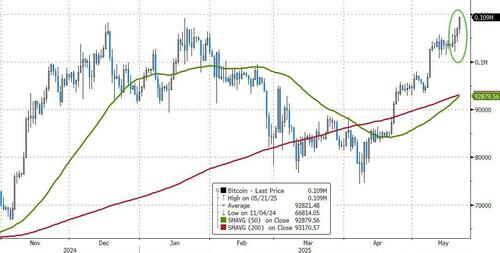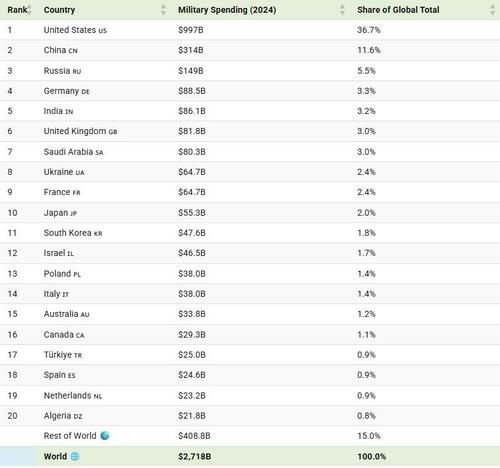In proclaiming the faith and in administering the sacraments every priest speaks on behalf of Jesus Christ, for Jesus Christ.
Distinction Matter - Subscribed Feeds
-
Site: LifeNews
Over the past few days, there have been many headlines about Adriana Smith, a pregnant woman who has been on life support for over three months.
Smith went to the hospital with a severe headache. The hospital negligently sent her home without doing a CT scan, and, therefore, missed multiple blood clots in her brain.
Smith slipped into a coma and, despite medical intervention, was declared brain dead. She has been kept on life support at a Georgia hospital ever since, in the hopes that her son may be born alive.
When the story broke, he was 21 weeks along, now 22 weeks. According to a recent study, babies born at 22 weeks who receive medical treatment have a 41% chance of surviving.
April Newkirk, Smith’s mother, ignited a media firestorm when she spoke to reporters about her daughter’s situation. She expressed grief over Smith’s condition and frustration that doctors didn’t allow her, as Smith’s closest relative, to make the decision whether to disconnect life support.
SUPPORT LIFENEWS! If you want to help fight abortion, please donate to LifeNews.com!
Newkirk said, “I’m not saying we would have chosen to terminate her pregnancy, but what I’m saying is we should have had a choice.” She claims Smith’s doctors told her they couldn’t disconnect Smith due to Georgia’s pro-life law.
Since then, pro-abortion groups have been loudly screaming about how egregious this case is. Mainstream media outlets have covered the story, all blaming Georgia’s pro-life law for putting a family through hell. Smith’s doctors are being condemned for trying to save her baby.
Even though Newkirk didn’t actually say she wanted life support shut off, pro-abortion activists have been demanding it.
Secular Pro-Life’s Monica Synder wrote a comprehensive article about the case. She cited a systematic review which found that, in cases of maternal brain death, 77% of babies were born alive, and 85% of those born alive were “normal” at 20 months of age (i.e., not disabled).
The women in the study were all over 20 weeks pregnant when they suffered brain death, and were on life support for an average of around seven weeks. Smith was earlier in her pregnancy. It’s possible this may change the odds for her son.
The Law in Question
Snyder discussed how, despite the strident headlines all over the mainstream media, it is likely not Georgia’s abortion ban that influenced Smith’s doctors, but a 15-year-old law that directly addresses pregnant people on life support. Synder writes:
It’s more likely that Georgia’s law regarding withdrawing life support for pregnant patients is the issue. GA Code § 31-32-9 states that doctors can’t withdraw life support from pregnant patients unless both (1) the fetus isn’t viable and (2) the patient had an advanced directive explicitly stating she wanted withdrawal of life-sustaining measures.
Note this code isn’t a result of Dobbs. It was enacted 15 years prior, in 2007. Most states have similar measures, including pro-choice states such as Alaska, Colorado, Illinois, Nevada, New Hampshire, and Pennsylvania.
Snyder’s article has a map that shows which states have similar laws.
Other pro-life groups and news sites have published similar articles.
Pro-Abortion Denial and Demonization
If one reads Code 31-32-9, it seems obvious that it’s the reason life support hasn’t been discontinued in Smith’s case. It literally deals with that exact situation. But that hasn’t stopped pro-abortion activists from insisting pro-lifers are wrong.
Jessica Valenti, a pro-abortion activist whose Substack has a large following, wrote:
Now, faced with the incredible suffering [pro-lifers’] policies are inflicting on Americans, the anti-abortion movement is either looking away or shirking blame…
Live Action, for example, put out a release claiming that it’s not the state’s abortion ban forcing the hospital to keep Adriana’s body alive—but other state laws about the withdrawal of life-support. It’s an assertion I’ve seen repeated by close to a dozen other anti-abortion activists and organizations.
She then quotes Georgia Attorney General Chris Carr:
There is nothing in the LIFE Act that requires medical professionals to keep a woman on life support after brain death. Removing life support is not an action ‘with the purpose to terminate a pregnancy.’
One would think that Carr, who is in charge of prosecuting those who break Georgia’s law, would know what it says and means. But Valenti insists he’s lying. The evil pro-lifers, she insists, are covering things up, and we just want to hurt people:
They planned for this. Anti-abortion legislators and activists knew this would happen—they knew their laws would devastate families and lives—and they passed them anyway…
Republicans are running from the expected and planned consequences of their own law because they know that voters are furious. They’re cowards. It’s that simple [emphasis in original].
Jessica Valenti says her audience consists of “journalists, abortion providers, community activists, clinic escorts, policy-makers, and more.”
I don’t want to assume all her readers feel as she does. But to Valenti, and I’d guess to many pro-abortion activists, we pro-lifers aren’t people who have deeply-held beliefs about the value of early human life, we are cardboard cut-out villains who live only to tear apart families, hurt people, and control women.
What About Smith’s Choice?
Several pro-life groups, including Live Action, have pointed out that Smith was pregnant with a wanted child. This wasn’t a woman who was hit by a car on her way to an abortion facility. Smith had chosen life and was, by all accounts, looking forward to bringing her child into the world.
Yet none of the pro-abortion activists commenting on the case seem particularly concerned about what Smith herself would have wanted.
Monica Synder says:
If abortion advocacy were primarily about autonomy, you’d think Smith’s likely perspective would be worth at least considering…
It’s a testament to how very little abortion advocates value unborn children, that even in a case where the woman (1) cannot be harmed by continuing the pregnancy and (2) may very well have wanted her child to live, the framing is outrage that her son’s life is prioritized.
Pro-Choice activists claim decisions about abortion should be left to the pregnant person—the person whose body the baby is developing in. So, one would think their main concern would be determining what Smith would have wanted for her own body and her own baby. But that doesn’t seem to be the case.
Monica Hesse at the Washington Post
An example of this is Monica Hesse’s piece in The Washington Post:
Hesse describes herself as a “professional feminist.” She summarizes Smith’s case, and writes:
Those events already constitute almost any definition of tragedy; in addition to the baby [Smith] was planning to welcome with her boyfriend, she already had another young son who will now be left without a mother. But what happened next turned the situation from a tragedy into an absolute horror show.
Hesse then quotes Ed Setzler, the Republican senator who sponsored Georgia’s pro-life law:
I think there’s a valuable human life that we have an opportunity to save, and I think it’s the right thing to save it. To suggest otherwise is to declare the child as being other than human.
Hesse responds:
This is hideous. This is hideous. The person who is not currently being treated as human is Adriana Smith. She is being treated as an incubator in the most literal sense of the word, her lifeless body forced to breathe so that it can sustain the struggling baby inside it.
And, yes, I am using the word “baby” instead of “fetus.” I am using that word because I have no doubts that Smith would have used that word. This was a wanted pregnancy and a planned dream of a planned family, and when that is your mindset, you think of the embryo as your baby from the moment you see a flickering heartbeat. [Emphasis in original]
Hesse engages in the same type of magical thinking I see so often, where whether a baby in the womb is a person depends on whether his mother wants him. A wanted fetus/baby is a human being. An unwanted one is just tissue.
There is, of course, no logic to this. But Hesse admits that Smith wanted her baby, and wanted to give birth. She demands that the baby die anyway.
I read a few of the comments. Those commenting all agreed with Hesse and discussed how awful it was that Smith is being kept on life support. There was the usual demonization of those horrible pro-lifers, and much criticism of Republicans on other issues (some of which I agreed with, but little of which was relevant to the actual case).
What Does “Pro-Choice” Mean?
I decided to post my own comment. This is what I wrote:
Can I ask a question to the pro-choice people in these comments?
Doesn’t being pro-choice mean that the pregnant person (and no one else) decides what happens to her pregnancy? That she has control over whether her fetus/baby can use her body? My body my choice?
And didn’t this woman WANT her baby? Didn’t she decide she wanted to give birth? She didn’t get hit by a car on the way to an abortion clinic. She was planning a birth.
Wouldn’t the pro-choice stand be to go with her wishes?
Monica Hesse seems to be saying, Adriana Smith wanted her baby and wanted to give birth. She made a CHOICE to have her baby. But she’s dead now, so what she wanted doesn’t matter.
Now it’s MY choice. I’m going to overrule what she actually wanted and make her pregnancy end, make sure the baby she wanted to live will die, because I think the whole idea of keeping her on a respirator is icky.
It if were me- if I were Adriana, and I was excited and happy to be pregnant, I would WANT my baby born. I would WANT them to keep me on life support. Why would I want my baby to die with me?
Today, I’ve seen many of my friends say the same thing on FB.
I’ve read numerous articles about this case, talking about how horrible it is. And not a single ONE has said anything about what Adriana Smith would have wanted. It’s like nobody cares.
So what does pro-choice actually mean? If the woman whose body the BABY IS IN doesn’t matter? If her wishes don’t matter one bit?
Hesse, can you please explain to me– WHY are you pro-choice? What do you base your beliefs on? Because it doesn’t seem to be the woman’s right to choose. Otherwise, why would you disregard Adriana’s?
Responses to My Comment
There were only a handful of responses, and, not surprisingly, none answered the question.
Two people claimed that the baby would be disabled and wouldn’t have a life worth living. One claimed the family should make the decision. Another said whoever was going to raise the baby should decide. This commenter mentioned the father. No one seems to have bothered to interview him and ask his opinion.
One commenter said that many women choose themselves over their babies when pregnancy threatens their life, but this isn’t relevant. Smith is already brain-dead; the death of her baby won’t save her life. It’s not a choice of one life or another, it’s a choice between one death or two deaths.
The last commenter said that she had once been in a medically induced coma and found the experience so traumatic that she now has a DNR (Do Not Resuscitate Order). If she were pregnant, she said, she would want them to honor the DNR, and would want her baby to die with her. A decision she can make—but what would Smith have wanted?
Hesse herself, unsurprisingly, never responded to my comment.
A Wanted Baby After All
Since I started this article, April Newkirk gave another interview. Despite all the assumptions from pro-abortion people over the past week, Newkirk WANTS her daughter’s baby to live.
She is quoted as saying, “We’re just hoping he makes it.”
She isn’t upset about the life support, it turns out, she is upset that the decision wasn’t hers. It seems she would have made the same decision the doctors did. She just wanted to be the one to decide.
Newkirk says:
We didn’t have a choice or a say about it. We want the baby. That’s a part of my daughter. But the decision should have been left to us — not the state…
[R]ight now, the journey is for baby Chance to survive — and whatever condition God allows him to come here in, we’re going to love him just the same [emphasis mine].
In the original interview that touched off the whole media firestorm, Newkirk never said she didn’t want the baby. That was widely assumed by pro-abortion people, but it appears it was never true.
Pro-Abortion Reactions on GoFundMe
Newkirk has started a GoFundMe. Some of the comments from donors reflect the belief that life support should be turned off.
[W]hat’s being done to Adriana and her unborn child in the name of “preserving life” is not a miracle. This is not God’s will. It is not divine intervention. It is a misuse of power, a violation of dignity, and a painful delay of sacred closure.
Your daughter’s soul deserves peace. Your grandchild deserves a transition—into life or into spirit—that is led by love, not experimentation.
I believe in a God who honors free will, the natural cycle of life and death, and the sacredness of grief.
And I believe that Adriana’s story is awakening many of us to truths that society tries to bury… Many of us see the truth and are standing with you, not in false hope, but in real love and spiritual clarity.
And:
I pray Justice will prevail and Adriana and her baby will be allowed to rest together. You should have been given a choice.
We should all be rioting outside of that hospital and demanding this broken law be rectified.
The GoFundMe has so far earned over $90,700.
As recently as an hour ago, I was still seeing memes on Facebook declaring that Smith was being kept on life support against her family’s wishes. It remains to be seen if anyone on the pro-abortion side will acknowledge that the family actually wants the baby.
LifeNews Note: Sarah Terzo covered the abortion issue for over 13 years as a professional journalist. In this capacity, she has written nearly a thousand articles about abortion and read over 850 books on the topic. She has been researching and writing about abortion since attending The College of New Jersey (class of 1997) where she minored in Women’s Studies. This article originally appeared on Sarah Terzo’s Substack. You can read more of her articles here.

The post Adriana Smith Wanted Her Baby. Her Choice Should be Respected appeared first on LifeNews.com.
-
Site: Zero HedgeBitcoin Surges To New Record High, 'Trumping' Gold Since ElectionTyler Durden Wed, 05/21/2025 - 11:10
Bitcoin just surge to a new record high, $109,500, extending its recent post-pause recovery and up over 60% since President Trump was elected...
BTC ETF inflows continue to build...
...and we suspect there is more to come, if the recent surge in global liquidity is anything to go by...
The aggregate open interest in Bitcoin futures surged to a record high on May 20, raising questions about whether bearish positions are now at risk.
Since Trump's Liberation Day (and now amid the 'One Big Beautiful Bill'), while gold has rallied solidly, Bitcoin appears to have been the preferred position for global uncertainty (after testing down to pre-election levels)...
As Bitcoin Magazine's Oscar Zarraga Perez reports, a new report from River reveals that the United States dominates Bitcoin ownership globally, holding about 40% of all available Bitcoin.
With 14.3% of its population owning Bitcoin, the U.S. outpaces Europe, Oceania, and Asia combined.
Corporate America also leads in Bitcoin holdings. Thirty-two U.S. public companies, with a combined market cap of $1.26 trillion, hold Bitcoin as a treasury asset. These firms account for 94.8% of all Bitcoin owned by publicly traded companies worldwide. Major holders include Strategy with 569,000 BTC, U.S. mining companies with 96,000 BTC, and others with 68,000 BTC, totaling 733,000 BTC in the U.S., compared to 40,000 BTC held elsewhere.
Since China’s ban on Bitcoin mining in 2021, the United States has become the global leader in Bitcoin mining, responsible for 38% of all new Bitcoin mined since then. The U.S. attracts miners thanks to its stable regulatory environment, access to deep and liquid capital markets, and abundant energy resources. These advantages have helped the U.S. increase its share of the global Bitcoin mining hashrate by over 500% since 2020, solidifying its position as the center of the industry.
Bitcoin is also emerging as America’s preferred reserve asset, overtaking gold. Over 49.6 million Americans are in favor of holding Bitcoin, compared to 36.7 million who still prefer gold.
The US government’s bitcoin advantage is greater than that of gold, where the US accounts for just 29.9% of the world’s central bank gold reserves.
“Because there is a fixed supply of BTC, there is a strategic advantage to being among the first nations to create a strategic bitcoin reserve,” said the White House on March 7, 2025.
Politically, support for Bitcoin is gaining significant momentum across the U.S. government. As of now, 59% of U.S. Senators and 66% of House Representatives openly support pro-Bitcoin policies, signaling a notable shift in political attitudes and greater acceptance of digital assets as key components of America’s economic future.
The study highlights that Bitcoin ownership is highest among American males aged 31-35 and 41-45, with ownership rates ranging from 3% to 41% within these age groups.
Politically, those identifying as “very liberal” or “neutral” are more likely to own Bitcoin than conservatives, though conservatives still make up a significant portion of holders.
Finally, as we detailed yesterday, global sovereigns have been 'quietly' gathering exposure to the cryptocurrency with StanChart's Geoff Kendrick targeting $500k by the end of Trump's term in office for the largest cryptro currency.
-
Site: Zero HedgeWTI Erases Israel-Iran Spike As Crude & Gasoline Stocks See Unexpected BuildTyler Durden Wed, 05/21/2025 - 10:39
Oil prices are modestly higher ahead of this morning's official energy inventory and supply data, but have come dramatically back off the overnight spike highs driven by CNN headlines suggesting Israel is ready to strike Iranian nuclear enriuchment sites.
“Either the impact on the oil market in case of an attack is assumed to be low, or the probability for an attack is assumed to be low,” said Bjarne Schieldrop, chief commodities analyst at SEB AB.
Wednesday’s gain “is not much when we are talking bombs in the Middle East major oil producing region.”
Overnight also saw API report another sizable crude inventory build, while products drewdown (again)...
API
-
Crude +2.5mm
-
Cushing -443k
-
Gasoline -3.24mm
-
Distillates -1.4mm
DOE
-
Crude +1.33mm
-
Cushing -457k
-
Gasoline +816k - biggest build since January
-
Distillates +579k
A smaller than expected crude build was offset by an unexpected build in Gasoline stocks according to the official DOE data...
Source: Bloomberg
Including a 843k barrel addition to SPR, total US crude stocks rose for the second week in a row...
Source: Bloomberg
US Crude production was up very modestly last week - hovering just below record highs - while the rig count continues to reject Trump's 'Drill, baby, drill' narrative...
Source: Bloomberg
Geopolitical concerns have for now overshadowed expectations of looser balances heading into the second half of the year, as OPEC and its allies bring back barrels to the market.
Source: Bloomberg
US shale oil output hasn’t peaked and can still expand, but not if prices are near $50 a barrel, ConocoPhillips’ chief executive officer said Tuesday.
Meanwhile, Trump will not be best pleased if geopolitical tensions raise the price of oil and wreck his inflation-busting drill-baby-drill hopes of declining pump prices for the average American.
-
-
Site: Zero HedgeIs Japan About To Hike Rates AND Restart Yield Curve Control?Tyler Durden Wed, 05/21/2025 - 10:20
By Elwin de Groot and Michael Every of Rabobank
Iran’s Khamenei said nuclear talks with US are unlikely to “lead to any outcome”… as US intel says Israel is preparing for a strike on Iran, seeing oil prices move higher. The Israeli press also says Iranian efforts to recruit Israeli agents have skyrocketed, Tehran trying to arrange high-profile assassinations inside Israel to mirror what Israel can do inside Iran, increasing the pressure further. That’s as President Trump is reportedly frustrated by Gaza war and wants PM Netanyahu to "wrap it up"; and the EU will review its association agreement with Israel, as their officials say diplomatic efforts stopped the EU from already halting the agreement; and the UK suspended trade talks with Jerusalem and attacked its ‘repellent’ extremism. Moreover, US Secretary of State Rubio said of Syria: “It is our assessment that, frankly, the transitional authority, given the challenges they’re facing, are maybe weeks —not many months— away from potential collapse and a full-scale civil war of epic proportions, basically the country splitting up,” which is justification for the US and EU removing sanctions on it. In short, the entire energy-rich region is in flux. And so is much else.
The IMF just asked the US to reduce its fiscal deficit as the Big Beautiful Bill will cut taxes and boost spending much further; and that’s as Reuters says the US ‘is preparing for a long war with China that could hit its bases and homeland’ and Trump is set to launch a "Golden Dome" missile defence system that will cost $175bn and almost certainly won’t be ready within his term of office, as promised. Trump reportedly also wants the UK to boost defense spending to 3% of GDP by 2029, so within the current parliament, increasing its fiscal deficit too.
Against that backdrop, the downgrade of the US by Moody’s last Friday may have not come as a huge surprise and its debt was already trading “as if” it no longer belonged to the AAA bucket. Still, the re-rating of US debt is having potential effects in corners of the market. Managers of Hong Kong’s Mandatory Provident Fund system are flagging they may be forced to sell their Treasury holdings, since the pension fund only allows them to invest more than 10% of their assets in Treasuries if the US has a AAA or equivalent rating from an approved rating agency. Japan’s Rating & Investment Information is the only approved agency left out there having the US at the highest rating level. The rating agency keeps the US’ rating on stable outlook and has indicated that the situation “hasn’t significantly changed” since it made its assessment in February.
But other scenarios could obviously play out. The US Congress is moving closer to endorsing Trump tax-cuts, leading to a significant increase in deficits and debt: with the IMF publicly calling for the US to reduce its deficit, such a scenario could lead to a gradual reduction in the share of Treasuries in various investment portfolios. Potentially, so could Trump considering an executive order to open US retirement plans to private equity, which would allow savers to access funds focused on “corporate buyouts and other high-octane deals” - so fewer US Treasuries(?)
Meanwhile, whereas European/German long-term yields are trading at levels that are still some 30-40bp lower than in early March --when the EU’s and Germany’s defence and infrastructure spending plans startled markets-- those in the US and Japan are trading close to or even higher than the levels seen in early March. A 20y bond auction in Japan saw the lowest demand since 2012 and this pushed the 30y Japanese yield to its highest level since its 1999 debut. It certainly doesn’t help when your own prime minister acknowledges the country’s fiscal situation is “extremely poor, and worse than Greece’s” – even if their intent is to signal opposition to fresh tax cuts financed by additional debt issuance.
Japan’s core inflation rate has come down from its peak levels of nearly 3% y/y in late-2023 to sit at just over 1.5%. That level, however, was only surpassed twice in the past thirty years: in 2014 and 1997. But in both instances the inflation spike was due to significant changes to the VAT system. If Japan has now entered (?) an episode of more ‘normal’ inflation, it could lead to more persistent upward pressures on (real) bond yields, which would raise interest costs.
And, like in the US and Europe, the central bank has been dialling down its bond purchases, which, next to weaker demand for bonds, could also be contributing to higher liquidity-risk premiums. Japan’s public debt ratio (214% in 2024) is the highest among developed economies. The BOJ still holds a staggering share (around 50%) of public debt on its balance sheet, but even if the central bank does not slow down its purchases, the ‘net’ amount of debt would still be in the 100%+ range and comparable to that of – indeed – Greece’s, back in 2007.
We want to avoid burning our fingers on the Japanese bond market – betting against it is commonly known as the widow-maker trade. But we ponder whether Japan could serve as an example for Europe or even, perhaps, the US – Japan, after all, has been the test case for many unconventional policies in recent (monetary) history.
First off, the country may be better placed than both of these peers to tackle bond market turbulence, and the impact of higher yields on governments’ financing costs. Only 12% of JGBs is owned by foreign parties. So, arguably, the government could introduce some form of wealth tax to claw back part of interest payments on its bonds. Note the similarities with the suggestions for a so-called Mar-a-Lago accord, in which the US could try to lessen its debt servicing costs by forcing its allies to term out their debt holdings at a below-market return, or by imposing some form of tax on foreign holders of Treasuries. The major difference is that Japan’s solutions could be less controversial, since domestic tax policies would suffice to achieve the desired outcome.
However, such a clawback only gets Japan so far. A wealth tax that offsets the higher debt servicing costs helps to contain the fiscal deficit and debt, but that does not provide the government with additional fiscal space to pursue its strategic goals, such as defence spending or reducing dependence on foreign inputs (note the similarities with the European situation here). Barring monetary support, more substantial tax increases or spending cuts in other areas would be required – and that could quickly erode support for the ruling party.
Alternatively, the BOJ could resume its government bond purchases. But this would arguably lead to higher inflation and would probably weaken the currency – at a time when the JPY is already under increased scrutiny of the US administration. Japanese finance minister Kato yesterday said that "[…] exchange rates should be set by markets, and that excessive volatility in currency moves has an adverse economic and financial impact." Weakness in the yen could undermine any trade agreement between the US and Japan. So, to mitigate this impact of quantitative easing, could the BOJ simultaneously raise its policy rates in an attempt to achieve a currency-neutral policy mix of higher rates and de facto yield curve control?
Meanwhile, in trade: China’s Xi stepped up calls for industrial self-sufficiency --so, no rebalancing then?-- and China said it will respond to US chip curbs; Malaysia is to press ahead with Huawei AI, testing the US position on that issue, as Nvidia’s CEO says US chip curbs on China are ‘a failure’; G7 countries are discussing tariffs on oversupplied, low-value Chinese products; the EU is considering a €2 de minimis charge on incoming Chinese packages; the EU is also expected to propose a quota for Russian gas, potentially offering companies a legal way to end their contracts; the US believes new sanctions on Russia may harm peace talks; India imposed restrictions targeting nearly 42% of inbound goods from Bangladesh; and Japan is taking a hardline position ahead of trade talks, demanding the US remove all reciprocal and sectoral tariffs on it.
So, yes, much is in flux.
-
Site: Zero HedgeRepublicans Race to Finalize 'Big Beautiful Bill' As Johnson Seeks Memorial Day DeadlineTyler Durden Wed, 05/21/2025 - 10:05
After weeks of turmoil and negotiations, House Republicans are inching closer to passing their sweeping domestic-policy package, anchored by a multi-trillion-dollar suite of tax cuts, as Speaker Mike Johnson races to finalize the legislation ahead of the Memorial Day recess.
 ouse Speaker Mike Johnson, R-La., at the US Capitol on May 6. Graeme Sloan / Bloomberg via Getty Images file
ouse Speaker Mike Johnson, R-La., at the US Capitol on May 6. Graeme Sloan / Bloomberg via Getty Images file
Following a personal visit to Capitol Hill on Tuesday by President Donald Trump and a flurry of behind-the-scenes bargaining, House GOP leaders believe they are nearing a deal with key factions. The House Rules Committee convened late into the night and early morning hours Wednesday, preparing the reconciliation bill for floor action. The committee had only just concluded its first panel - which included the chairs and ranking members of the Oversight, Budget, Armed Services, and Financial Services Committees - shortly before 4:30 a.m. (and then returning to their coffins for a nap?).
The second panel will include top lawmakers from House Homeland Security, Judiciary, Natural Resources and Transportation and Infrastructure committees, while a third panel will include the chairs and ranking members from Agriculture, Energy and Commerce, Education and the Workforce & Ways and Means.
In total, 537 amendments have been submitted to Rules - none yet from Democrats. Notably, GOP leadership has still not released its long-awaited manager’s amendment, which will incorporate many of the compromises Johnson negotiated to appease internal party divisions, including revisions to SALT, Medicaid work requirements, and clean-energy tax credits, Punchbowl News reports.
Despite the complexity, Johnson is moving aggressively. He hopes to pass a rule and hold a full floor vote as soon as today - a schedule driven by his desire to meet the Memorial Day deadline, avoid attendance issues later in the week, and capitalize on rare momentum.
The legislative sprint follows a dramatic shift in tone after Trump met Tuesday morning with warring GOP factions and urged unity. Several Republican holdouts publicly maintained opposition afterward, but six senior Republicans involved in the talks said many were privately seeking off-ramps - policy concessions that would let them support the bill while still claiming political victories.
As Just the News notes, a final push will require some conservatives to make a leap of faith, like Rep. August Pfluger (R-TX), the chairman of the House Republican Study Committee, is taking.
"Look as a conservative, I want to save as much money as I can, and we have pushed for that in the Republican Study Committee," he told the outlet on Tuesday. "But the President was pretty clear that we've worked five or six months straight on this, and it is time to get it done.
"That doesn't mean that a guy like me doesn't want more. Yes, of course I do. But I also want to govern, which means you don't get 100% of everything you want every single time. You have to come back and do it again, and we will," he said during the John Solomon Reports podcast.
Currently included in the Bill...
Trump tax cuts; the largest in history with an average $5,000 decrease per household, and includes 'No Tax on Tips, Overtime or Social Security.'
Immigration and Border Security:
-
“Big, Beautiful Deportations”: funding for 1 million deportations per year
-
Completion of the border wall
-
Expansion of border personnel - including 10,000 new ICE agents, 5,000 customs officers & 3,000 Border Patrol agents - and $10,000 bonuses for front-line border workers
Medicaid Reform:
-
Remove 1.4 million illegal migrants from Medicaid
-
Requires work for benefits starting January 2029
Spending Cuts and Fiscal Reform:
-
$1.6 trillion in mandatory spending cuts - the largest deficit reduction in nearly 30 years - though the Penn Wharton Budget Model predicts deficits of nearly $3.3 trillion, even when accounting for "positive economic dynamics," while the Joint Committee on Taxation sees the House reconciliation bill increasing deficits by $3.8 trillion through 2034.
-
The White House Council of Economic Advisers projected that the bill would boost GDP by 4.2% to 5.2% in the short run — a staggering level of growth that goes far beyond the mainstream consensus, via Axios.
-
-
Repeals all of Biden’s “Green New Scam” subsidies & ends electric vehicle mandates
Social and Cultural Measures:
-
Ends taxpayer-funded sex reassignment procedures for minors
Infrastructure and Modernization:
-
Major overhaul of air traffic control systems
Support for Families and Workers:
-
Launch of "MAGA Accounts" for newborns (tax-advantaged savings)
-
Increased child tax credit, strengthened paid family leave, and repeals IRS gig worker reporting rule (>$600 for Venmo/PayPal)
Support for Farmers:
-
$10 billion+ in tax cuts & eliminates death tax to aid generational farm transfers
SALT
One of the most contentious sticking points has been the state and local tax deduction, or SALT. Republicans from high-tax states have demanded relief from the $10,000 cap implemented in 2017. After intense pressure, Johnson offered a revised framework: a $40,000 cap for households earning up to $500,000 (down from a Tuesday proposal for income up to $751,000), with the cap and income threshold escalating 1% annually for ten years. While it falls short of SALT advocates’ hopes - particularly in addressing the so-called marriage penalty - it’s more than many conservatives are comfortable with.
"This is purely a House play and designed to deal with the political challenge they have to get to 218," Senator John Thune (R-SD), a longtime opponent of expanding SALT, said in an interview Tuesday. "But, I mean, that seems like an incredibly generous offer."
Thune alluded to possible markups in Senate committees once the legislation arrives from the House. But that’ll be dictated by the House’s timing and what senators think of the proposal.
“I’m a regular order guy. I think you can improve the product,” Thune said. “But obviously, depending on what happens in the House and the timeline we have to work with, getting committees up and going and doing their thing takes a while - and how ready the product is for prime time… There are certain things the Senate wants to have its imprint on.” -Punchbowl
Meanwhile, to placate the House Freedom Caucus, Johnson has proposed accelerating the phase-out of clean-energy tax credits enacted under President Biden’s Inflation Reduction Act. Initially scheduled to begin after 2028, the new plan would start the phase-out in 2028, with a carveout for nuclear credits. Freedom Caucus Chair Andy Harris (R-Md.) signaled progress Tuesday evening, backing off prior demands to slash Medicaid funding and saying talks were “moving in the right direction.”
Still, not all conservatives are satisfied. Reps. Chip Roy (R-TX) and Thomas Massie (R-KY) are expected to vote no. Others are calling for the party to return to a two-bill strategy - a position rejected months ago by both House and Senate GOP leadership.
ROY just came out of confab with Johnson super sad. Says “we will see” if he still a “no” https://t.co/Xh3NuZULr5
— Erik Wasson (@elwasson) May 21, 2025Despite those tensions, GOP leaders are betting on Trump’s endorsement and the pressure of a looming deadline to push the bill through. “Things don’t get better when you hold it out there,” one senior Republican said. Another added bluntly: “It’s easier to break up with someone from a basement over email. Harder to do it in person, face-to-face.”
Meanwhile, Democrats are preparing their messaging campaign. A memo from the House Majority Fund - a group aligned with Democratic leadership — advised lawmakers to focus on how the GOP legislation would raise prices for everyday Americans while benefiting the wealthy, rather than lean on technical deficit arguments or hyperbolic language.
The Congressional Budget Office (CBO) added fuel to the fire Tuesday night, estimating that the Republican bill would increase the deficit by $2.3 trillion over the next decade. The CBO projected automatic spending cuts to Medicare and other safety-net programs without congressional action and warned that the bill would boost the incomes of the wealthiest 10% of Americans while reducing incomes for the bottom 10%.
Rep. Brendan Boyle (D-PA), ranking member on the Budget Committee, called the legislation "absolutely devastating" for working Americans. Protesters gathered outside the Capitol on Wednesday morning, denouncing proposed cuts to Medicaid.
Despite the fierce opposition, House Republican leaders believe they are close. And if the manager’s amendment is released in time, Johnson may force the issue by calling a floor vote before lawmakers - including members of his own party - have had a full opportunity to digest the final terms.
For Johnson, the choice is strategic: act quickly or risk watching weeks of work fall apart under the weight of delay.
-
-
Site: AsiaNews.itThe Pakistani Foreign Minister travelled to Beijing to boost the CPEC project, which will also include Afghanistan. While tensions with India have subsided, violence continues in Balochistan where a bomb attack against a school bus kills several children. The missile exchange between India and Pakistan is redefining the geopolitical alliances across Eurasia.
-
Site: Mises InstituteThe Usual Suspects from the American and European elites are claiming that Spain's recent blackout was the result of unusual weather conditions. In truth, Spain's dependence upon renewable energy was to blame.
-
Site: Steyn OnlineMark takes questions from Steyn Club members around the planet...
-
Site: Steyn OnlineThank you for your many kind comments on our eighth-birthday Tale for Our Time. There are sixty-nine others in our extensive archive. Our seventieth, however, is Three Men on the Bummel, Jerome K Jerome's comic romp of 1900. Steyn Clubber Fraser
-
Site: Steyn OnlineIf you missed this week's edition of Steyn's Clubland Q&A live around the planet, here's the action replay...
-
Site: Zero HedgeCongress To Seize Control Of AI: States Stripped Of Regulatory PowerTyler Durden Wed, 05/21/2025 - 09:50
Via JonFleetwood.substack.com,
Buried deep in Congress’s 1,116-page “One Big Beautiful Bill Act” is a provision so sweeping, so dystopian, and so underreported that it’s hard to believe it was passed at all.
Section 43201 of the bill, blandly titled the “Artificial Intelligence and Information Technology Modernization Initiative,” doesn’t just fund the federal government’s full-scale AI expansion—it removes every state’s right to regulate artificial intelligence for the next decade.
Let that sink in: For the next ten years, no state in America—not even your state—will be allowed to create its own safeguards, protections, or liability standards for how AI is developed or deployed.
“No State or political subdivision thereof may enforce any law or regulation regulating artificial intelligence models… during the 10-year period beginning on the date of the enactment of this Act.”
- Sec. 43201(c)(1) of the bill
This is not a theoretical threat.
It’s a federal ban on local AI regulation—handing the reins to the very bureaucrats and corporate tech giants already embedding AI into military systems, healthcare, financial markets, education, and law enforcement.
This section of the bill is a preemptive strike against state sovereignty.
It neuters legislatures and governors from protecting their own citizens—just as powerful corporations and federal agencies rush to install AI systems into every layer of society.
It’s not just overreach.
It’s a federal power grab dressed as “modernization.”
And President Trump is now marching on Capitol Hill to personally demand the bill’s passage—pushing the very legislation that would shield his $500 billion Stargate AI surveillance grid from any state-level resistance.
The bill—developed by the House Budget Committee, which passed the legislation yesterday—still needs to be voted on in the House and Senate before it hits Trump’s desk, so if you want your senators and representatives to vote no on it, you can contact them here and tell them why.
The House is expected to vote on the One Big Beautiful Bill by the end of this week.
-
Site: LifeNews
Two prominent US bishops commended Congress this week for advancing budget measures that would cut taxpayer funding to abortion providers and “gender transition” services.
Bishop Daniel E. Thomas, chair of the United States Conference of Catholic Bishops’ (USCCB) Committee on Pro-Life Activities, and Bishop Robert E. Barron, chair of the Committee on Laity, Marriage, Family Life, and Youth, recently voiced strong support for provisions within the House budget reconciliation bill that would redirect funding away from organizations like Planned Parenthood.
CatholicVote reported that the proposed legislation includes provisions to block federal funds for gender procedures for minors under Medicaid, while also cutting off funding for abortion providers that do not comply with the Hyde Amendment, which only allows abortions in cases of rape, incest, or when the mother’s life is at risk.
SUPPORT LIFENEWS! If you want to help fight abortion, please donate to LifeNews.com!
“For decades, Planned Parenthood has received government money and offered low-income women one terrible option: to end the lives of their babies,” the bishops stated. “More recently, they have used the same taxpayer funds to expand their destructive offerings, by promoting gender ideology and providing puberty blockers and hormones to minors, turning them into lifelong patients in the process.”
The bishops emphasized that federal funding should not be used to support practices that are harmful to human dignity.
“Americans should not be forced to subsidize abortions and ‘gender transition’ services with their tax dollars,” they said.
In addition to praising the House’s efforts to defund Planned Parenthood, Bishops Thomas and Barron urged lawmakers to redirect funds toward “authentic, life-affirming health care providers that serve mothers and their children in need.”
They also appealed to Congress and the Trump Administration to protect vulnerable populations, especially women and children, from “mutilating ‘gender transition’ services and the scourge of abortion.”
LifeNews Note: Rachel Quackenbush writes for CatholicVote, where this column originally appeared.

The post Catholic Bishops Support Reconciliation Bill to Defund Planned Parenthood appeared first on LifeNews.com.
-
Site: ChurchPOP
As the cardinal electors voted on the future of the Catholic Church in the silence of the Sistine Chapel, a funny and curious moment occurred.
Cardinal Luis Antonio Tagle of the Philippines shared in a recent press conference an event that occurred moments before the cardinals chose Cardinal Robert Prevost as Peter's 267th successor.
Cardinal Tagle said Cardinal Prevost was reflective and visibly moved as it became clearer that he was about to be chosen as the next pope.
Sitting next to him, Cardinal Tagle noticed the anxious expression on Cardinal Prevost’s face. Then, something unexpected happened: Cardinal Tagle reached into his pocket and offered Cardinal Prevost candy.
Cardinal Tagle said:
"I always have a bag of sweets. Cardinal Prevost was next to me. When he was sighing deeply, I said, 'Do you want a sweet?' He said, 'Okay, give me one.' And I said, 'That's it, this is my first act of charity for the new pope,'" the Filipino joked.Cardinal Tagle explained that he brought the sweets because he imagined the conclave could last for hours, and this was not the first time he did this.
When Pope Francis was elected in 2013, Cardinal Tagle brought something to "cheat his hunger." At the time, a Colombian cardinal joked with him when he saw him open a package.
"In Italian, he asked me what I had brought to the Sistine Chapel. I said, ‘caramel candy,’ and he said, 'A little boy bringing candy to the Sistine Chapel. ' And I said, 'The sessions here are very long, so I always get hungry. ' So he asked, 'Do you have any more? Please give me some," Cardinal Tagle laughingly recalled.Cardinal Tagle also said that because they sat by each other, then-Cardinal Prevost (now Pope Leo XIV) asked him several questions about the process. The 2025 conclave was Cardinal Prevost’s first conclave, and Cardinal Tagle's second.
“He has a humorous side, he has such a great sense of humor that he laughs out loud,” Cardinal Tagle said of Pope Leo XIV.
Let us pray for Pope Leo XIV’s pontificate!
-
Site: LifeNews
President Donald Trump urged House Republicans to unite behind his sweeping “One Big Beautiful Bill Act” Tuesday morning, highlighting the legislation’s major tax cuts, pro-family provisions, and conservative reforms.
“It’s important for the country,” Trump said Tuesday morning. “It’s the biggest tax reduction in history, incredible for Medicaid, Medicare.”
Responding to Democratic claims that the bill would cut core entitlements, Trump added: “The only thing we’re cutting is waste, fraud, and abuse… We’re not changing Medicaid, and we’re not changing Medicare, and we’re not changing Social Security.”
The bill was approved Sunday night by the House Budget Committee, days after a GOP-led block temporarily stalled it due to concerns about its projected impact on the national debt. It includes large tax breaks for working-class Americans, small businesses, and domestic manufacturers, while targeting several Biden-era policies.
Click here to sign up for pro-life news alerts from LifeNews.com
White House Press Secretary Karoline Leavitt called it “the single most pro-small business, pro-family, and pro-American worker legislation ever.” She noted provisions including no taxes on tips, no overtime tax for law enforcement and firefighters, and a large tax deduction for Americans buying American-made cars.
“Despite desperate Democrat lies, the biggest beneficiary of this tax cut will be working-class Americans and their families,” Leavitt said Monday. “Americans earning between $30,000 and 80,000 per year will pay about 15% less in taxes after this bill is passed.”
The bill also advances longtime conservative priorities, including defunding Planned Parenthood, banning taxpayer-funded “gender transition procedures” for minors through Medicaid, and expanding school choice.
House Speaker Mike Johnson, R-LA, praised the bill’s repeal of over $500 billion in “radical ‘Green New Deal’” funding, calling it a decisive move to end “Biden’s war on American energy.”
White House Council of Economic Advisers Chairman Steve Miran, citing a new analysis, said the plan could boost GDP by up to 5%, create as many as seven million jobs, and raise the average family’s take-home pay by $8,000-$13,000.
“President Trump’s budget blueprint has a lot of great things in it, not the least of which is stripping federal funding from Planned Parenthood,” said CatholicVote Vice President Joshua Mercer. “That alone is reason enough to support this bill. Factor in the tax breaks for families, pro-worker policies, educational choice, and more, and the ‘big-beautiful bill’ adds up to a major win for Americans.”
A key committee hearing is scheduled for Wednesday, with House leaders aiming for a floor vote soon. If the bill clears the House, it will advance to the Senate, where Republicans are reportedly considering amendments.
LifeNews Note: Elise DeGeeter writes for CatholicVote, where this column originally appeared.

The post Trump Tells Republicans to Vote for One Big Beautiful Bill to Defund Planned Parenthood appeared first on LifeNews.com.
-
Site: Zero HedgeGLAAD Claims Free Speech Surge On Social Media Undermines LGBT SafetyTyler Durden Wed, 05/21/2025 - 09:30
One of the most detrimental self-sabotage efforts of the woke movement was their rabid push to control public speech online. In the case of gay and trans issues, any criticism no matter how factual or logical was met with Orwellian oversight. For most major social media apps, simply engaging in debate with LGBT activists could mean your account would be flagged and silenced for days or weeks at a time. Refusing to use a trans person's preferred pronouns could result in a permanent ban.
Such policies were established hand-in-hand with federal government efforts to codify LGBT language and make gay and trans people a privileged class protected from any and all scrutiny. Governments and social media platforms partnered up to institute speech controls that might not be possible otherwise. Under the guise of "protecting LGBT people" from discrimination, the door to arbitrary censorship was opened.
This is why in the US there is no such thing as a legal definition for "hate speech". Classifying any speech as "hate speech" would represent a clear violation of the 1st Amendment. Yes, you can "yell fire" in a crowded theater, and yes you can call people whatever pejoratives you want to call them. Hurt feelings are irrelevant to the law, and this is a good thing.
GLAAD, the gay and trans lobby group, thinks otherwise.
The organization issued an “alarming” Social Media Safety Index report this month, which found that, after significant rollbacks in protected speech, social media platforms are overwhelmingly "failing to protect" LGBTQ people.
The only major app that did not receive an "F" grade on LGBT safety was TikTok, which got a D+. GLAAD has now changed it's grading system due to the lack of platforms meeting their standards. For 2025, the platforms were rated numerically, with TikTok at 56/100; Facebook: 45/100; Instagram: 45/100; YouTube: 41/100; Threads: 40/100; and X the lowest at 30/100.
“At a time when real-world violence and harassment against LGBTQ people is on the rise, social media companies are profiting from the flames of anti-LGBTQ hate instead of ensuring the basic safety of LGBTQ users,” GLAAD President and CEO Sarah Kate Ellis said in a statement shared with TheWrap. “These low scores should terrify anyone who cares about creating safer, more inclusive online spaces,” she added.
Taking into account the fact that woke activists consider mean words to be the same as an act of violence, it's difficult to take any warnings from GLAAD seriously.
The report lists 14 indicators which address a range of issues affecting LGBTQ people online, including data privacy, moderation transparency, training of content moderators, and workforce diversity. The factor that most interests GLAAD, however, is online censorship.
Jenni Olson, senior director of social media at GLAAD, argues that “The terrible rollbacks from Meta and YouTube are the most important news this year,” referring to both company’s recent decisions to allow previously prohibited hate speech, such as references to LGBTQ people being “abnormal” and “mentally ill” as well as the use of pejorative terms such as “tranny” and “transgenderism.”
“It is especially horrible that YouTube removed gender identity from its list of protected characteristics - and yet is continuing to state that the policy hasn’t changed, when it very clearly has …This is just unprecedented for a major platform. It is extremely concerning for a company to remove a protected characteristic group from a hate speech policy,” Olson said.
In other words, online speech policies are going back to normal and GLAAD doesn't like it. Frankly the amount of social division and strife caused over protecting the fragile feelings of a tiny percentage of the total population isn't worth it. LGBT groups are nothing more than a convenient minority vehicle which the establishment tried to use to inject thought control into the public consciousness. The societal damage done has been immense and will take years to reverse.
The popular anger over LGBT issues was created by the very activists crying about safety. If they had left people alone instead of trying to force their ideological language on the masses, there would be no animosity today. They earned public suspicion by trying to silence public discussion.
-
Site: Ron Paul Institute - Featured Articles
Perhaps Putin should tell the Russian people and the Russian Army that his interest in resolving the conflict in Ukraine with peace negotiations lies in the possibility that the negotiations could be used to achieve a Great Power Agreement like what he and Lavrov tried to achieve with the West during the winter of 2021-2022 prior to Russia’s forced intervention in Ukraine. A New Yalta in effect.
Russian foreign affairs commentators have been speaking for some time about the need for a new Yalta agreement. A few years ago I was asked to address the Russian Academy of Sciences on the subject. I told them something that they did not want to hear: that Washington’s claim to hegemony prevented accommodation to Russian sovereignty.
A few thinking people have been perplexed at Putin’s conduct of the conflict in Ukraine. Russia could have ended the war quickly with conquest, but instead has fought a slow, restrained war that has greatly expanded the war with Putin and Lavrov bleating constantly for “peace negotiations.”
Why has Putin done this despite the protests of the Wagner Group and the Chechnya leader of the Muslim troops fighting in the Ukraine conflict? The only answer seems to be that he wants a New Yalta Agreement. If he wins the war, he loses the opportunity. So he drags out the war in the hopes that negotiations will provide a platform for addressing the “root cause of the conflict”–which he sees as the absence of a Great Power Agreement.
One problem Putin’s wishful strategy faces is Washington’s commitment to hegemony. No American president has repudiated the Wolfowitz Doctrine. Another is that the absence of victory goes down poorly with the Russian nationalists and with the troops themselves. There are news reports that Russians are suspicious and resentful of peace negotiations in Ukraine that stop short of victory.
Russian soldiers doing the fighting have told media that as tired as they are and as much as they want to go home, they want to liberate all of the regions that are once again part of Russia so that they don’t have to renew the fight in the future. As one of the soldiers asked, “Otherwise, have all the guys died in vain?”
Russia’s rescue of the Russian territories assigned to Ukraine by Soviet leaders is important to Putin, but more important is to secure a Great Power Agreement, a New Yalta, that accepts Russia as a member county free of sanctions, overthrow attempts, and conflicts.
Putin is so desirous of this agreement that he has risked the ever-widening of the Ukraine conflict to the point that drone attacks now close all Moscow airports and destroy energy infrastructure deep inside Russia. When Putin says that peace negotiations must address the “root cause of the conflict,” he means the absence of a Great Power Agreement.
Putin is not interested in a negotiated end to the conflict in Ukraine. He is hopeful of using negotiation to achieve a New Yalta. The problem that Putin faces is that Washington, wrapped up as it is in its assumed hegemony, has no comprehension of another country’s point of view.
Washington’s approach to all negotiations is to use threats, to look for levers of pressure to force other governments to accept Washington’s “solution” to the “problem,” usually a Washington creation. In other words, Washington doesn’t really negotiate. It imposes its solutions.
Trump expects the Ukrainian negotiations to fail, and has ensured as much, in order to be able to withdraw money and focus from Ukraine and use the resources to bring into operation Trump’s goal of an American Middle East colonial empire which began with Trump’s claim of Gaza as an American possession. This claim is a claim to the undersea gas reserves that run from Gaza’s border with Egypt to northern Syria. Trump’s visit in Saudi Arabia, the last remaining Arab state, was to enlist the rulers as junior partners in Trump’s American Middle East colonial empire. It seems that with Trump’s domestic agenda blocked by the judiciary, Trump will make us great again with the rise of America’s Middle East Empire.
Reprinted with permission from PaulCraigRoberts.org.
-
Site: Ron Paul Institute - Featured Articles
The hatred of some in Israel for the people of Gaza – even for little children – is just astounding. If they have even a tiny bit of belief in God, they should pray for forgiveness.
Unfortunately, NPR reported last Thursday (May 15) on “deadly airstrikes, killing more than 150 people in the past day, including dozens of children.”
On May 9 the Israeli newspaper Haaretz and many other publications reported on a meeting of a subcommittee of Israel’s Foreign Affairs and Defense Committee.
The hearing in the Knesset, Israel’s Parliament, was not about concern for children who were starving or who had to have amputations without anesthesia. It was about concern over the public relations harm to Israel.
One of the witnesses was Dr. Sharon Shaul from NATAN, a worldwide humanitarian aid charity.
Dr. Shaul said, “I believe that none of the people sitting around this table are concerned that a suffering child cannot receive painkillers or even minimal medical treatment.”
Then the story said that Knesset member Amit Halevi from Netanyahu’s Likud Party “interrupted her angrily saying, ‘I’m not sure you’re speaking for us when you say we want to treat every child and every woman.’”
The doctor then replied that she hoped the member would not oppose “a four-year-old child” undergoing an amputation receiving pain medication. “I hope you have that compassion,” Dr. Shaul said.
However, Knesset member Limor Son Har-Melech “pointed at the doctor and said ‘the only treatment that should be given is to you.’” Another member shouted, “You are the sickest doctor I have ever seen.”
Elad Barashi, a producer at Israel’s Channel 14, surpassed even this hatred by writing on social media in early May: “Good morning. Let there be a holocaust in Gaza.”
In another post, he wrote: “I can’t understand the people here in the State of Israel who don’t want to fill Gaza with gas chambers … or train cars … and finish this story. Let there be a holocaust in Gaza.”
He added: “Men, women and children – by any means necessary we must simply carry out a Shoa against them – yes, read that again – H-O-L-O-C-A-U-S-T!”
He said there were 2.6 million terrorists in Gaza and wrote: “Without fear, without weakness – just Crush. Eliminate. Slaughter. Flatten. Dismantle. Smash. Shatter.”
The fanatic Netanyahu has been indicted for war crimes and crimes against humanity, yet he is a hero in our Congress because of campaign contributions. The rest of the world is overwhelmingly against the genocide in Gaza.
In my column two weeks ago, I wrote of the letter signed by the 36 members of the Board of Deputies of British Jews, which criticized what it called this “most extremist of Israeli governments” and said, “We stand against the war.”
Even more significant – in fact, almost shocking – is the column Thomas Friedman, the longtime New York Times columnist, published on May 9 entitled “This Israeli Government Is Not Our Ally.”
Friedman said Netanyahu has placed personal political survival before his nation’s and U.S. interests and wrote, “Netanyahu is not our friend.”
He added that “a permanent Israeli military occupation, whose unstated goal will be to pressure all Palestinians to leave is a prescription for a permanent insurgency – Vietnam on the Mediterranean.”
Israel has never had any prominent media voice more supportive than Friedman has been over the years. He has been writing for the New York Times since 1981.
President Trump wrote that the release of the American hostage Edan Alexander a few days ago was “a step taken in good faith toward the United States and the efforts … to put an end to this very brutal war…”
Axios reported that “Israel was not directly involved … and initially learned about it from its intelligence services who spy on Hamas.” This gives credence to the many reports that Trump is tired of being manipulated by Netanyahu.
CNN reported on May 12 that Trump “blindsided Israel several times already – announcing talks with Iran, a deal with Yemen’s Houthi rebels, and direct talks with Hamas,” plus not stopping there on the president’s latest Middle East trip.
Maybe Friedman’s column and some of the statements and actions by Trump will finally give some members of Congress the courage to speak out against Israel’s cruelty in Gaza.
Reprinted with author’s permission from the Knoxville Focus.
-
Site: LifeNews
Former New York Governor Andrew Cuomo issued the order in March 2020 that ultimately killed at least 15,000 nursing home residents. Many senior living centers were flooded with COVID patients thanks to Cuomo’s reckless order putting them in senior living facilities instead of other locations that could have protected elderly people.
Now, the Justice Department has launched a criminal investigation into Cuomo, probing whether he lied to Congress about his role in a state policy that led to the deaths of thousands of nursing home residents. The investigation, initiated last month, centers on a controversial March 2020 directive that required nursing homes to accept COVID-positive patients, a policy critics argue caused a catastrophic loss of life among vulnerable seniors.
Click here to sign up for pro-life news alerts from LifeNews.com
The probe follows a referral from House Oversight Chairman James Comer, who accused Cuomo of making false statements to a House subcommittee investigating his administration’s handling of the pandemic.
Comer’s referral alleges Cuomo was involved in drafting a 2020 New York State Health Department report that downplayed nursing home deaths, despite testifying he had no role in its creation.
Cuomo’s March 25, 2020, order mandated nursing homes to admit or re-admit patients regardless of their COVID status, a decision that pro-life groups and grieving families say endangered elderly residents. The policy, which was revoked on May 10, 2020, is blamed for contributing to the deaths of at least 15,000 nursing home residents, according to reports.
A 2021 investigation by New York Attorney General Letitia James found that the state undercounted nursing home deaths by as much as 50%, excluding residents who died after being transferred to hospitals.
This investigation is long overdue for people like Daniel Arbeeny, co-founder of We Care Memorial Wall for COVID nursing home victims, whose father, Norman, died in a Brooklyn nursing home after contracting COVID. Arbeeny, who filed a wrongful death lawsuit against Cuomo in 2022, called the policy “reckless endangerment” that cost thousands of lives.
He has said Cuomo must be held accountable for forcing nursing homes to accept infected patients when safer alternatives, like hospital ships, were available.
Janice Dean, a Fox News meteorologist who lost both her in-laws to COVID-19 in New York nursing homes, has been a vocal critic as well and says there needs to be accountability for the 15,000 seniors who died alone because of Cuomo’s deadly directive.
Families of nursing home victims see the probe as a step toward justice.
Vivian Zayas, co-founder of Voices for Seniors, whose mother died in a Long Island nursing home, said, has demanded the truth for over 5 years.
The Justice Department and FBI declined to comment, citing a policy of not confirming ongoing investigations. Whether the probe will lead to charges remains unclear, but for pro-life advocates and affected families, it represents a chance to hold Cuomo accountable for policies they believe prioritized politics over human lives.

The post Justice Department Investigating Andrew Cuomo for Killing Thousands of Seniors appeared first on LifeNews.com.
-
Site: PaulCraigRoberts.org
How America Is Being Made Great Again
Paul Craig Roberts
Perhaps Putin should tell the Russian people and the Russian Army that his interest in resolving the conflict in Ukraine with peace negotiations lies in the possibility that the negotiations could be used to achieve a Great Power Agreement like what he and Lavrov tried to achieve with the West during the winter of 2021-2022 prior to Russia’s forced intervention in Ukraine. A New Yalta in effect.
Russian foreign affairs commentators have been speaking for some time about the need for a new Yalta agreement. A few years ago I was asked to address the Russian Academy of Sciences on the subject. I told them something that they did not want to hear: that Washington’s claim to hegemony prevented accommodation to Russian sovereignty.
A few thinking people have been perplexed at Putin’s conduct of the conflict in Ukraine. Russia could have ended the war quickly with conquest, but instead has fought a slow, restrained war that has greatly expanded the war with Putin and Lavrov bleating constantly for “peace negotiations.”
Why has Putin done this despite the protests of the Wagner Group and the Chechnya leader of the Muslim troops fighting in the Ukraine conflict? The only answer seems to be that he wants a New Yalta Agreement. If he wins the war, he loses the opportunity. So he drags out the war in the hopes that negotiations will provide a platform for addressing the “root cause of the conflict”–which he sees as the absence of a Great Power Agreement.
One problem Putin’s wishful strategy faces is Washington’s commitment to hegemony. No American president has repudiated the Wolfowitz Doctrine. Another is that the absence of victory goes down poorly with the Russian nationalists and with the troops themselves. There are news reports that Russians are suspicious and resentful of peace negotiations in Ukraine that stop short of victory.
Russian soldiers doing the fighting have told media that as tired as they are and as much as they want to go home, they want to liberate all of the regions that are once again part of Russia so that they don’t have to renew the fight in the future. As one of the soldiers asked, “Otherwise, have all the guys died in vain?”
Russia’s rescue of the Russian territories assigned to Ukraine by Soviet leaders is important to Putin, but more important is to secure a Great Power Agreement, a New Yalta, that accepts Russia as a member county free of sanctions, overthrow attempts, and conflicts.
Putin is so desirous of this agreement that he has risked the ever-widening of the Ukraine conflict to the point that drone attacks now close all Moscow airports and destroy energy infrastructure deep inside Russia. When Putin says that peace negotiations must address the “root cause of the conflict,” he means the absence of a Great Power Agreement.
Putin is not interested in a negotiated end to the conflict in Ukraine. He is hopeful of using negotiation to achieve a New Yalta. The problem that Putin faces is that Washington, wrapped up as it is in its assumed hegemony, has no comprehension of another country’s point of view.
Washington’s approach to all negotiations is to use threats, to look for levers of pressure to force other governments to accept Washington’s “solution” to the “problem,” usually a Washington creation. In other words, Washington doesn’t really negotiate. It imposes its solutions.
Trump expects the Ukrainian negotiations to fail, and has ensured as much, in order to be able to withdraw money and focus from Ukraine and use the resources to bring into operation Trump’s goal of an American Middle East colonial empire which began with Trump’s claim of Gaza as an American possession. This claim is a claim to the undersea gas reserves that run from Gaza’s border with Egypt to northern Syria. Trump’s visit in Saudi Arabia, the last remaining Arab state, was to enlist the rulers as junior partners in Trump’s American Middle East colonial empire. It seems that with Trump’s domestic agenda blocked by the judiciary, Trump will make us great again with the rise of America’s Middle East Empire.
-
Site: Saint Louis Catholic

There are plenty of areas in which to be disappointed (or justified, depending on your level of cynicism) by the current presidential administration. But one has to be grateful to God that Trump is president, if only to be freed from the globalist tyranny of the so-called World Health Organization. Withdrawing our country from the WHO and the oh-so-fraudulently-based Paris Climate Accords are two of the very best moves he has made.
Make no mistake, and you likely already know this, the globalist WHO and the climate scam are nothing more than means of globalist tyranny, the weakening of national sovereignty, and a gigantic tax on US citizens to fund their own destruction.
The global response to the 2020 cold virus “pandemic” was so good for the globalists that they want even more power. The WHO just adopted a “pandemic agreement” that requires member nations to do what it says. Thankfully, our withdrawal from this gang of corrupt and evil bureaucrats was already announced and will soon be over. I get the feeling also that should the gang declare a summer beach and playground pandemic before the literal ending date of US membership that our president would tell them where and how far up to stick their dictates.
Like I said at the time, it isn’t as though we deserve the blessings of the good Lord for anything we have done. But in His goodness He has given us a stay of execution, as it were. Further membership in the WHO might have been a literal death sentence. Good for President Trump.
Now do NATO.
-
Site: PaulCraigRoberts.org
The Camp of the Saints
Paul Craig Roberts
80% Of French Women Want The Army Deployed In French Cities To Protect Them Against Immigrant-Invaders
France has seen an incredible 86 percent increase in sexual violence in the last 10 years, with mass immigration fueling this trend.
https://www.zerohedge.com/geopolitical/80-french-women-want-army-deployed-french-cities-protect-them
It is the same in Sweden, Norway, Germany, all over Europe.
The French women will not receive the French army’s protection. The French government, like the governments in Norway, Sweden, Germany and all of Western Europe, is committed to the erasure of ethnic nations. French women should have read The Camp of the Saints. They should have voted for Marine Le Pen, the only French political leader who believes in a French ethnic nation.
Now it is too late for the French women. The government of France has framed Le Pen and sentenced her to prison for her defense of a French ethnic nation. She was eliminated for being a French nationalist, not for the alleged fraud used to frame her.
The death of white ethnic nations is the consequence of the use of education by the leftwing to destroy the belief system. White ethnicities have been taught to see themselves negatively and infused with guilt to such an extent that they cannot defend themselves or even recognize their true leaders. They consistently vote for their own destruction.
-
Site: PaulCraigRoberts.org
Democrats Hate White People
Here is the white Democrat Rep. Merkley raising a fuss with Secretary of Defense Rubio–why Rubio?–about white South Africans being allowed into the US.
What more proof do insouciant Americans need that Democrats are anti-white?
https://x.com/nicksortor/status/1924862459623440604
When you take a close look at the US Congress, the media, educators, the judiciary, you have to wonder how the United States can possibly survive.
-
Site: Novus Motus LiturgicusOur thanks to Dr Agnieszka Fromme for sharing with us this interesting article about theological censorship in the post-Conciliar lectionary. It will be presented in two parts. Jefferson Bible (photo from Smithsonian)Was a “Richer Table of the Word” Truly Set for Us in 1969? A Comparison of the Tridentine Lectionary and the Ordo Lectionum Missae Dr. Agnieszka Fromme One of the aims of the Peter Kwasniewskihttp://www.blogger.com/profile/02068005370670549612noreply@blogger.com0
-
Site: Fr. Z's BlogIt’s great to see a phrase you have popularized for so long that people now use it rather commonly. It’s even better when that phrase is used to describe our new Pope Leo XIV. Also of note in that screen … Read More →
-
Site: Voice of the Family
“Western mass media is extraordinarily effective in fostering within the general public enormous sympathy for beliefs and practices that are at odds with the Gospel — for example abortion, homosexual lifestyle, euthanasia.” — Fr Robert Prevost OSA (Leo XIV) Johan Bergström-Allen is a “lay pastoral minister at Our Lady’s Church in York” and “chairman of […]
The post Of millstones and strange flesh appeared first on Voice of the Family.
-
Site: Voice of the Family
As we have seen, the British campaign for abortion emerged from the eugenics movement, whose members believed society was “breeding from the wrong end” and that the proliferating “unfit” should be sterilised; however, while eugenicists believed that the “fit” should have more children, and the “unfit” fewer, the equally secular Neo-Malthusians advocated the small “Malthusian […]
The post Religion and the abortion campaign (2) appeared first on Voice of the Family.
-
Site: Voice of the Family
From Divine Intimacy Prelude O Jesus, make me understand that my prayer is of no avail unless it is made in Your Name; that my faith is vain unless I convert it into works. 1 In this Sunday’s Gospel, taken again from the discourse of Jesus after the Last Supper (Jn 16:23–30), the Church continues […]
The post Efficacious prayer: on the fifth Sunday after Easter appeared first on Voice of the Family.
-
Site: Mises InstituteEconomists have said that a higher education degree is a form of “signaling” by the person holding the diploma. Thanks to government attempts to make higher education readily available, the value of a college degree has been severely degraded.
-
Site: AsiaNews.it40,000 welcome Pope Prevost in St Peter's Square for his first public audience. Tour in the popemobile amid cheers and flags from Lebanon, Ukraine, and peace movements. Leo XIV continues the catechetical series 'Jesus Our Hope', begun by Francis for the Jubilee. A renewed appeal for 'dignified humanitarian aid' to Gaza: 'We are called to sow hope and build peace.'
-
Site: southern orders
Pope Leo has a busy June. Of note, though, is the return of the Corpus Christi Eucharistic Procession to Rome, specially the Basilicas of St. John Lateran and St. Mary Major. It’s been a few years since Pope Francis has had the procession in Rome.Unfortunately it will be on a Sunday rather than the preceding Thursday. Keep in mind that the symbolic meaning of having it on Thursday is to remind us of Holy Thursday and the Institution of the Most Holy Eucharist by our Lord. Hopefully Holy Thursday never gets transferred to the following Sunday like Corpus Christi and the Ascension have.
From Vatican News:
As the Church marks the Solemnity of the Body & Blood of Christ (Corpus Christi) on Sunday, June 22, Pope Leo XIV will preside at Mass at 5:00 PM in the Basilica of St. John Lateran and take part in the Eucharistic procession to the Basilica of St. Mary Major.
-
Site: AsiaNews.itIn an interview with AsiaNews, Cardinal Louis Raphael Sako reflects on the days of the Conclave spent alongside the new pontiff and their 'very important' first meeting after the election. He describes the 'complicated situation' facing Christians in the Middle East, who suffer from a 'lack of stability' despite some improvements in security. His first words to Pope Prevost: 'We are counting on you.'
-
Site: The Remnant Newspaper - Remnant ArticlesOn May 17, 2025, in the Clementine Hall, Pope Leo XIV received the members of the Centesimus Annus pro Pontifice Foundation, a Vatican organization that promotes the study and dissemination of the Church's social doctrine. Speaking precisely about this, the Pope took the opportunity to clarify what he means by "doctrine."
-
Site: Fr. Z's Blog“Shut up, pray for the man, keep doing your thing and stay out of sight. Winter is not over. The wolves are not dead yet.” HERE
-
Site: Mises InstituteThe reaction to Biden’s cancer announcement reveals how little trust the public has in the people who spent years claiming that Biden’s mental decline was fabricated by right-wing propagandists. That lack of trust is well deserved.
-
Site: Real Investment Advice
Monday was a record-setting day. Stocks opened down 1% on news that Moody's downgraded the US credit rating to AA. While some perceived the downgrade as problematic, retail investors, aka individuals, bought stocks at the highest rate ever. Per JP Morgan, retail investors purchased a net of $4.1 billion of US stocks in the first three hours of trading. As their graph below shows, Monday's retail buying stampede dwarfs prior instances.
While the retail net inflow was quite impressive, it does leave the bulls and bears with a consideration. We should ask ourselves who the retail investors bought the stock from. The answer, by default, is institutional investors. This trend of retail buying from institutional investors has been ongoing. As we wrote in Smart Money or Dumb Money: Who Will be Right:
Smart money (institutions and hedge funds) is aggressively selling this market while individual investors, aka dumb money, are aggressively buying. The difference in opinions is stunning.
Typically, institutional investors are right; however, over the last few years, retail has proven to be the smarter money. Is retail out of money? Or will institutions cover?

What To Watch Today
Earnings

Economy
- No notable economic releases today
Market Trading Update
Yesterday's commentary noted the numerous momentum indicators suggesting higher asset prices ahead. While the markets are indeed short-term overbought and due for a pullback, the bull market remains intact and will likely end the year with higher, rather than lower, prices. However, when markets rally as hard as they have lately, adding exposure to the market as needed becomes difficult.
The subject of this weekend's newsletter will be "Trading An Unstoppable Bull Market." This will not be the first time we have written this article, but every time we get into similar market environments, the challenges remain the same for investors.
There are millions of different ways to approach technical analysis, and investors use millions of combinations of technical indicators to try to decipher market movements. I am only going to discuss how we do it with you.
Notably, technical analysis does NOT predict the future. It is the study of historical price action, which is the purest representation of the psychology of market participants. From that study, we can make statistical observations about the behavior of market participants in the past. Those assumptions can help form a “guess,” assuming similar variables, about how they may act in the near term.
For our portfolio management needs, we keep our analysis very simple. We use one indicator to indicate if prices are overbought or oversold, two moving averages to determine the trend of prices, and Bollinger bands to warn of significant deviations from those moving averages. I show the technical setup in the sample chart below from SimpleVisor.com.

We are looking for either “warning signs” that stocks could be due for a short to intermediate-term, corrective period, or indications that they are oversold and ready to advance. Currently, we are dealing with the former.
Historically, when prices move toward the upper bands of 2- or 3-standard deviations above the 50-day moving average (dma), the Relative Strength Index (RSI) is overbought, and the MACD is crossing lower from a high level, stock prices generally correct to some degree. Such is the potential environment we will likely deal with in the next few weeks as we move into June and stock buybacks begin to fade. This is also why we have suggested taking profits, rebalancing risk, and holding cash for a better entry point.
However, while we are waiting for an entry point to increase exposure, it is essential to remember the most important commandment:
Commandment #1: “Thou Shall Not Trade Against the Trend.” – James P. Arthur Huprich
Let me be very clear. We are discussing risk management. You must understand the market’s overall trend and when it is changing. The negative price trend from April is over, and the market continues to trend positively. That is just what it is.
Currently, we are in a “bull market” advance. As such, we want to maintain our exposure to equity risk. However, this does not mean we should ignore what the market tells us and let the ebbs and flows wash over us. Eventually, another “ebb” will come, and we will want to increase risk accordingly. However, that is not today.
“In a bull market, you can be either long or neutral. In a bear market, you can only be neutral or short.” – Dennis Gartman
While the market could certainly pull back to the lower of those “bands,” corrections will likely remain confined to the 50-dma. As such, we will want to use those opportunities to trade portfolios into higher levels of equity exposure. With the market currently more overbought and extended, we want to remain cautious about committing our cash reserves to the broad market more aggressively.
“Willingness and ability to hold funds uninvested while awaiting real opportunities is a key to success in the battle for investment survival.” – Gerald Loeb
I hope this helps.

World Government Bond Yield Curves
The graph below from Trading View provides some context for the level of US Treasury yields. As shown, other than the UK, the US has the highest yields across the maturity spectrum. Other than China, all of the curves slope upward. Thus, short-term yields are lower than longer-term yields. Such a slope is normal. Moreover, it occurs after most of the slopes were inverted.
The notable difference between the curves is the lower short-term rates for all countries but the US and UK. Excluding Japan, their central banks have been more aggressive in cutting rates. While deficit- and tariff-related inflation narratives keep US yields higher than other countries, investors focused on the historical drivers of yields (inflation and economic activity) should find value in the higher yields. However, the battle between narratives and fundamentals favors the narratives for now.

How To Achieve Financial Independence And Retire Early (FIRE)
The FIRE movement—short for Financial Independence, Retire Early—has gained popularity among those who want more control over their time and financial future. Unlike traditional retirement models, FIRE encourages aggressive saving and disciplined financial planning to reach financial independence far earlier than the typical retirement age.
Whether you dream of leaving the 9-to-5 grind in your 40s or simply want to build more freedom into your life, understanding the FIRE retirement strategy and how to build a financial independence plan is essential.
Tweet of the Day

“Want to achieve better long-term success in managing your portfolio? Here are our 15-trading rules for managing market risks.”
Please subscribe to the daily commentary to receive these updates every morning before the opening bell.
If you found this blog useful, please send it to someone else, share it on social media, or contact us to set up a meeting.
The post Retail Is Fearless: Buy The Dip Is On Steroids appeared first on RIA.
-
Site: PeakProsperityEpstein's death inconsistencies suggest homicide, not suicide; official narratives questioned.
-
Site: Crisis Magazine

Traditional, orthodox Roman Catholic believers ought to be extremely grateful that American Catholics do not vote on Catholic doctrine, moral teaching, and ecclesiology. Because if they did, and if they got their way, much of the historic Roman Catholic Church would be swept away into the dustbin of history. This conclusion screams from the pages of a recent Pew Research Center survey report…
-
Site: Real Investment Advice
The following paragraph, courtesy of Amazon, reviews the book Death of the Dollar by William Rickenbacker.
Death of the Dollar by William F. Rickenbacker is a critical examination of the economic policies and monetary mismanagement that the author argues are eroding the value of the U.S. dollar and threatening financial stability. Rickenbacker contends that the actions of money managers, including excessive government spending, inflationary policies, and the detachment of the dollar from the gold standard, are systematically devaluing the currency. The book warns of an impending monetary disaster, highlighting how these policies disproportionately harm everyday citizens who rely on the dollar’s stability for savings and investments. Through a blend of economic analysis and historical context, Rickenbacker underscores the dangers of unchecked financial intervention and the potential for a collapse of the dollar’s purchasing power.
Plenty of books, articles, and social media posts herald the same grim forecast as Rickenbacker. For the most part, they rely on similar reasoning. Essentially, lax monetary policy and gross fiscal spending, both deemed to be inflationary, will result in dollar devaluation and ultimately the death of the dollar.
The difference between Rickenbacker’s book and other dollar demise forecasts is that Death of the Dollar was written in 1968! Fifty-seven years later, despite, or possibly because of Rickenbacker’s justifications, the dollar is still the world's reserve currency, and no other sovereign currency, cryptocurrency, or precious metal will replace it anytime soon.
Given the topic's importance and the gross misinformation spread about the dollar’s imminent demise, we review Rickenbacker’s thesis to highlight that today’s warnings have been around for decades and why the odds of them coming to fruition this time are very low, as they were decades ago.

Removal Of The Gold Standard
Rickenbacker’s book was published in 1968, three years before President Nixon closed the gold window, essentially making the dollar a fiat currency. While his book accurately predicted that ground-shaking event, it did not correctly anticipate its impact.
He reasoned that without gold regulating the supply of dollars, unchecked monetary policy would result in reckless “money printing.”
He was correct that the Fed would have more flexibility in managing the money supply. Furthermore, with this added power, we have seen reckless behavior, as he theorized. However, Rickenbacker erred on the money printing allegation.
The Fed doesn’t print money. All money is lent into creation by banks. The Fed prints bank reserves, which allow banks to make loans, i.e., print money, if they choose. More importantly, even if the money supply increases due to Fed incentives to lend, it's unclear whether such activity is good or bad for the economy and how it impacts inflation and ultimately the dollar’s value. That is a function of the productivity of debt.
Simply, productive debt drives economic growth, increases the nation's prosperity, and reduces deficits as a percentage of economic activity. Unproductive debt detracts from economic growth and prosperity and worsens deficits. Weaker growth from unproductive debt tends to be disinflationary.
As judged by an increasing debt-to-GDP ratio, aggregate debt has been unproductive, leading to lower inflation growth rates. Thus, if the concern is that “money printing” would lead to inflation, it may lead to disinflation.
Fed Flexibility
In one respect, Rickenbacker correctly said that giving the Fed more flexibility was a curse. Easy money policy has led to periods of gross speculation and crises, such as in 2008.
However, without the gold shackles, the Fed has incredible power to manage economic crises and avoid a currency collapse. In fact, despite the 2008 crisis having roots in the US mortgage market and the prospect of the collapse of the US banking system, the world flocked to dollars during the crisis, as shown below.

Most crises have been accompanied by a stronger dollar, proving that the dollar is the port in the storm foreign investors seek when economic confidence is lacking, and liquidity is paramount.

Excessive Government Spending
The book criticizes massive federal expenditures, particularly on social programs and military efforts, which create budget deficits, drive up inflation, and ultimately devalue the dollar. The book was written while Lyndon Johnson spent heavily on the Vietnam War and domestic programs. Again, Rickenbacker was correct in worrying about inflation, a big problem throughout the 1970s.
Despite ever-increasing government spending and an increasing debt-to-GDP ratio, the globalization of trade has expanded rapidly since his book was published. With it, foreigners' demand for dollars has been growing, and in mirror fashion, so is their need to invest the dollars, which helps us fund our deficits.
Even today, with “runaway” deficits making headlines daily, the dollar remains in the upper range of the last 35 years.

Dollar Devaluation In Context
Rickenbacker believed that easy money Federal Reserve policies, such as low interest rates and expanding the money supply, would fuel inflation that would erode the dollar’s purchasing power. He was right, as evidenced by comparing what a dollar buys today versus yesteryear. However, the argument provides little context.
For instance, in the 1950s, a hamburger (15 cents), fries (10 cents), and a Coke (10 cents) at McDonald's cost less than 50 cents. Today, the same meal could run nearly $10.
Although decades of inflation have drastically eroded the dollar's value, our standard of living has risen appreciably. To wit, the purchasing power of one dollar in 1947 has eroded to 7 cents. However, as shown below, inflation-adjusted incomes have risen fivefold since 1947. The dollar buys less, but our incomes buy more!

Trade and Balance of Payments Deficits
Rickenbacker points to persistent U.S. trade deficits and dollar outflows abroad, which weaken the currency’s global standing. He is correct that trade deficits have steadily increased, resulting in more dollars flowing abroad. However, more dollar outflows are a result of more demand for dollars. Furthermore, those dollars ultimately return to the US through investments and loans to the government and corporations. The larger the global economy, the greater the need for dollars, and the more dollars that need to be invested in the US economy.

Rickenbacker Was Right
The author’s concerns are valid and, in many cases, have proven true. However, the victim has not been the dollar. The victims are larger deficits, lower productivity growth, hollowing out of manufacturing, and a growing wealth divide, to name a few.
While these are big problems, they do not necessarily threaten the dollar's status. As we wrote in Four Reasons The Dollar Is Here To Stay:
The pundits will be right someday. The dollar’s death as the reserve currency will come, and some other nation’s currency, cryptocurrency, gold, shells, or something else will take its place. However, that day is not coming anytime soon. The four reasons we describe in the article leave the world with no alternative.
While China is rapidly growing its economy and global trade footprint, it lacks the rule of law and liquid capital markets to sustain a global currency. It’s difficult to see how a communist country can overcome those challenges.
The Euro is the most viable competitor. They have the rule of law, but their capital markets are not nearly liquid enough to facilitate global trade. They also lack the military might to force the usage of the Euro. Let us also remember its finances are in equally bad or even worse shape than the U.S. There is no reason to suspect the euro could overtake the dollar.
Bitcoin? Forget about it! The government will never relinquish its control over the currency because, with that, they lose control of the nation.
Summary
Had Rickenbacker’s Death of the Dollar book solely focused on monetary and fiscal imprudence and its negative implications for the country, he would have been proven a seer. Unfortunately, he was wrong to insist that the dollar would lose its status as the world’s reserve currency.
The graph below, courtesy of the Federal Reserve, shows how the dollar's usage in global transactions has been stable for the last two decades. The index calculation, as detailed at the bottom of the graphic, is based on the primary uses of currencies.
The post Death Of The Dollar: An Eternal Tale appeared first on RIA.
-
Site: Crisis Magazine

On a recent Tuesday, beneath a wide, blue sky stretched over the French countryside, two Benedictine Sisters of Montmartre led me into a small room to speak with the bishop who had offered the Holy Sacrifice of the Mass. They spoke softly in French to Bishop Pascal Marie Roland, the shepherd of Belley-Ars, who listened in silence, nodding, his gaze fixed on the floor. When he finally looked up…
-
Site: Mundabor's blogA video has surfaced of the now Pope Leo XIV, wearing an absolutely stupid-looking university hat, criticising those who criticised the Evil Clown. Because I feel directly – even in my insignificance – called into the question by a prelate who is now Pope, I will allow myself to *not* let bygones be bygones and […]
-
Site: AsiaNews.itThe government in Tbilisi is proudly touting Georgia's buoyant GDP figures, claiming that the economy has tripled in recent years thanks to its own policies. However, the real driving force behind this surge has been the indirect effects of the war in Ukraine. ...
-
Site: southern orders
-
Site: Zero HedgeBreaking Down Global Military Spending By Country In 2024Tyler Durden Wed, 05/21/2025 - 04:15
In a world where superpowers are defined by economic and military stature, countries continue to invest hundreds of billions in military and defense every year.
In 2024, global military expenditure reached $2.7 trillion, hitting a record high - and just three countries made up more than half of the total.
This infographic, via Visual Capitalist's Niccolo Conte, breaks down global military spending by country in 2024, highlighting the top military spenders using data from the Stockholm International Peace Research Institute (SIPRI).
The World’s Biggest Military Spenders in 2024
America continues to dominate global military expenditure, spending nearly $1 trillion or 3.4% of its GDP on defense in 2024. U.S. military expenditure makes up over one-third of the global total, and it also has the world’s biggest defense budget.
Here’s a look at the top 20 countries by military spending in 2024:
China follows the U.S. with an estimated $314 billion in military expenditure, up 7% from 2023. Over the last decade (2015–2024), China’s military spending increased by 59%.
Meanwhile, Russia’s spending was up by 38% year over year at nearly $150 billion. Together, the United States, China, and Russia—often considered strategic competitors—made up 54% of global military expenditure in 2024.
Germany and India round out the top five, with both countries ramping up military spending in light of rising geopolitical tensions in recent years. India’s simmering tensions with Pakistan and China contribute to its defense budget.
Meanwhile, as a major NATO member, Germany’s spending is partly down to the conflict between Russia and Ukraine. Together, NATO countries made up 55% of global military expenditure in 2024.
In the eighth spot, Ukraine has seen the biggest jump in military spending in recent years—with its 2024 spending at nearly 10 times 2021 levels. It also has the highest military burden globally at 34.5% of its GDP in 2024. Although peace talks between Russia and Ukraine are ongoing, a complete ceasefire is yet to be achieved.
To see how global military expenditure has evolved in the 21st century, check out 20 Years of Global Military Spending on the Voronoi app.
-
Site: Mises Institute
-
Site: Rorate CaeliCorrispondenza RomanaMay 21, 2025Two words recur frequently in Pope Leo XIV's speeches from the very beginning of his pontificate: “peace” and “unity.” Peace is what the Pontiff invokes in the face of an international scenario that in the Regina Caeli of May 12 he described as "dramatic." Unity is what the Church needs in order to face a fragmented world, as he explained in his May 18 New Catholichttp://www.blogger.com/profile/04118576661605931910noreply@blogger.com
-
Site: Zero HedgeUK Space Ambitions Clash With NATO Airspace ConcernsTyler Durden Wed, 05/21/2025 - 03:30
-
The UK’s new vertical launch spaceport at Saxa Vord poses risks to Icelandic airspace and territorial waters, potentially disrupting transatlantic flights and marine ecosystems.
-
Exclusion zones for rocket launches could interfere with NATO's ability to effectively patrol the Greenland-Iceland-United Kingdom gap, an area of strategic importance for defense.
-
While a memorandum of understanding exists between the UK and Iceland, it may not adequately address the full defense and military ramifications of frequent space launches in this critical region.
When I relocated to the UK from New York in 1984, the Cold War was at its peak. US nuclear and conventional forces were spread across Europe and fears of a Soviet invasion or nuclear exchange were ever-present. In the UK, another critical strategic concern was the Greenland-Iceland-United Kingdom (GIUK) gap, which are two stretches of the North Atlantic separating these three countries. During the Cold War, Soviet naval forces aimed to control this gap to access the broader North Atlantic and block NATO reinforcements to Europe, a scenario famously depicted in Tom Clancy’s Red Storm Rising.
After the Cold War ended and the so-called Peace Dividend reduced the gap’s significance, its strategic importance faded. However, since 2014, with Russia’s renewed assertiveness, the GIUK gap has regained prominence in NATO planning. The US reopened Keflavik Naval Air Station in Iceland in 2016, re-established its 2nd Fleet in 2018 to protect the gap and, as recently as March 2025, Standing NATO Maritime Group 1 increased its patrols in the region.
I warn of danger
While NATO has prepared for Russian threats, a new risk closer to home is now emerging: the UK’s and Europe’s first vertical launch spaceport at Saxa Vord, Shetland. Ironically, this site was once an RAF early warning and air defence base during the Cold War, bearing the motto Praemoneo de Periculis, or “I warn of danger”.
Commercial space launches are still in their infancy, but recent incidents such as SpaceX’s launch failures – spreading debris across Florida and the Caribbean and grounding flights – and a Norwegian test rocket explosion highlight the risks. Saxa Vord itself attempted a rocket launch last August, resulting in an engine explosion. The international nature of space launches means that countries near Saxa Vord, especially Iceland, are directly in the path of up to 30 planned launches per year, four a month at peak, with ambitions to increase to 40 or 50 annually.
These launches pose multiple risks to Iceland and the GIUK gap:
-
Rockets may enter Icelandic airspace, with first-stage returns falling through Icelandic airspace and into territorial waters.
-
Catastrophic failures could scatter debris, whilst hazardous chemicals from rocket propellants threaten marine ecosystems.
-
Rerouted transatlantic flights of up to 76 a day, according to Icelandic air traffic control’s ‘anonymous’ response to the CAA’s Saxa Vord licence consultation.
-
Even more importantly and less scrutinised – the presence of exclusion zones for launches could undermine NATO’s ability to patrol the gap effectively.
Memorandum of Misunderstanding
These risks are partly managed by a memorandum of understanding (MoU) signed between the UK and Iceland in July 2021. The MoU mandates the closure of designated Icelandic sea and airspace areas before launches and outlines some procedures for debris recovery. However, while a handful of Icelandic officials are aware of the implications, the broader political and media discourse in both countries has yet to grapple with the full defence and military ramifications of the impact of such numbers of launches into NATO’s strategic sea and airspace.
The current trajectory of UK space ambitions – and planned rocket launch from the UK – means the UK’s space ambitions could inadvertently undermine the very security framework that underpins Western interests in the North Atlantic and the Arctic.
There is an urgent need for both the UK and Icelandic governments to reassess the risks from Saxa Vord, ensuring that existing bilateral agreements align the UK’s space programme with enduring geopolitical realities and the security needs of NATO and its allies. Saxa Vord has to be a success – but upon the present strategy security triumphs space whilst Iceland is developing its own space strategy – which might well consider how launch capability could be nationalised to give greater control over risk.
-
-
Site: Mises InstituteBankruptcy in the short term is painful. In the long term, it is cleansing decades of poor federal government choices.
-
Site: Zero HedgeTea Or Coffee?Tyler Durden Wed, 05/21/2025 - 02:45
Today, May 21 marks International Tea Day.
With a global market valued at nearly $50 billion in 2023, tea is said to be the second most consumed beverage in the world.
As the United Nations notes, the tea industry provides "a major source of income and export earnings for some of the poorest countries and, thanks to its high labor requirements, generates numerous jobs, particularly in remote and economically disadvantaged areas."
As Statista's Anna Fleck reports, Statista Consumer Insights surveyed 23 countries around the world to find out more about global tea drinking habits.
It found that while tea was a popular choice for many respondents, coffee proved to be consumed by a higher share of adults in almost every country surveyed, save for Turkey, Morocco and India.
You will find more infographics at Statista
In the United States a comparatively lower share of people said they drank tea (46 percent) or coffee (53 percent) regularly, while soft drinks were more popular (56 percent).
-
Site: The Unz ReviewIt’s an oft-heard complaint, even a canard, about white people in general and white conservatives in particular. The immigration issue is framed in terms of white dislike for other races. It's misleading, even among most white right-wing types. While it’s true that some whites do harbor disdainful, contemptuous, hostile, and even hateful views in regards...
-
Site: The Unz ReviewOn the road in Iran - The International North South Transportation Corridor (INSTC) is one of the most crucial geoeconomic/infrastructure projects of the 21st century. It unites at its core three key BRICS nations – Russia, Iran and India – branching out to the Caucasus and Central Asia. When fully operational, the INSTC will offer...





































